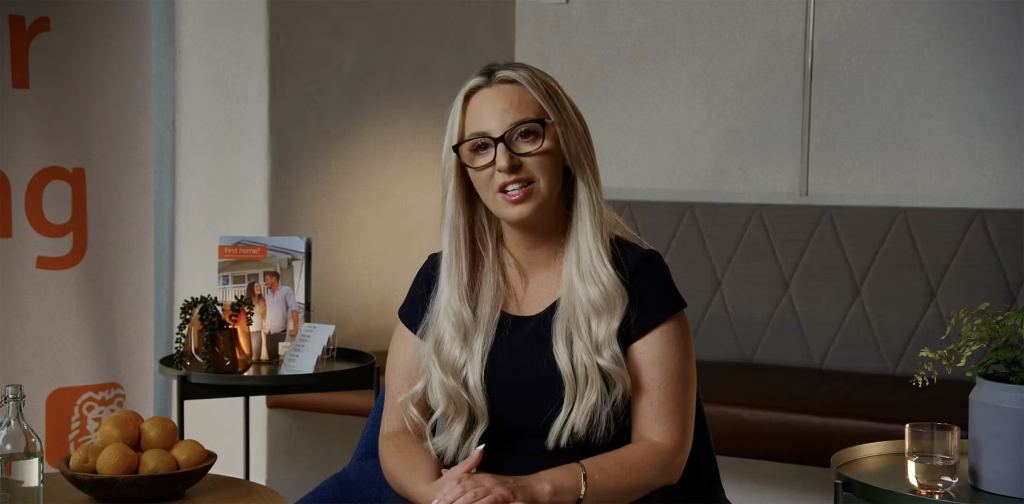Deposit devotion: six tips for getting your home loan savings on track

When it comes to saving for your first home, it can be a challenge to stay the course. But we’ve got your back. Whether you’re already making positive progress or your budget is a bit busted, here are six tips to get your deposit savings on track.
1. Know your outgoings
When you’re going for a home loan, it’s not only about income. A lender (like us) will also look at your expenses in deciding how much you can borrow and whether you can afford it. So it’s important to know what you’re spending money on, big or small – it all adds up.
First, take stock. Look at the past month and compare how much money is coming into your account versus how much you are spending. This will help you get a clear picture of whether you need to cut back, and by how much. Seriously, analyse every transaction. Ask yourself: Were all those purchases necessary? What could you have gone without?
2. Check your commitments
Direct debits and subscription services mean it’s all too easy to sign up and forget about the cost. If you’re direct debiting money into your savings account, great! But what’s not great is paying for something you don’t even use.
When you look at your outgoings, look at all the different types of recurring expenses (like these sneaky direct debits and subscriptions) over the past year, and assess whether you still need them. If you’re not getting your sweat’s worth with your gym membership or you find yourself tossing each issue of that magazine you subscribe to straight into the recycling bin, it’s time to hit ‘cancel’ and put the money towards your first home deposit.
3. Get a better deal on utilities
Gas, water, electricity – utility bills are a cost of living that’s hard to shake. And most of us have insurance for something: like a car, a house or even a cat. It’s easy to fall into the trap of sticking with the same provider for years without comparing what else is on offer. Sure, some people call it laziness. We’ll call it “having better things to do”. But it’s worth taking some time to shop around because it can literally pay off. It mightn’t be as fun as hitting up your favourite online stores for new clothes, but seeking out a better mobile phone contract or car insurance policy could get you closer to your first home. The more you free up for your home loan, the better.
4. Start an emergency fund
An emergency fund can be so freeing. Instead of stressing out when a big bill or surprise expense drops, you’ll know you’ve got that extra cash up your sleeve to cover it. You don’t need to be putting away buckets of bills, either. Even $20 a week will add up to more than $1,000 over the course of a year. That could be a surprise trip to the dentist right there.
5. Pay yourself first
Instead of long-forgotten subscriptions sneaking dollars out of your bank account without you seeing them, imagine that same money slipping silently from your regular account into your savings account and growing your home loan deposit. All it takes is you making saving a non-negotiable part of your financial behaviour by setting up an automatic regular transfer from your everyday to your savings account. And if you can make it land in an inaccessible savings account (to stop you dipping into it when temptation strikes), even better. Our tip is to set it up for pay day – or you could even organise with your employer to transfer a portion of your pay directly to your savings before it even hits your everyday account.
6. Spread money across multiple accounts
We’re totally into this banking technique. It’s all about allocating a certain amount of money to a certain use by opening a savings account for each of those uses and splitting your money across them. That way, you’ll (ideally) use the money in each account for its specific purpose, which can help keep your savings untouched and on track. Three is a good number of accounts (for things like daily spending, bigger expenses and savings) but you might want to add a fourth and call it, since we’re on the topic, “My home deposit”. Spread out your income every pay day and you’ll be on your way.
Important information
The information is current as at publication. Any advice on this website does not take into account your objectives, financial situation or needs and you should consider whether it is appropriate for you. Deposit products, savings products, credit card and home loan products are issued by ING, a business name of ING Bank (Australia) Limited ABN 24 000 893 292, AFSL and Australian Credit Licence 229823. All applications for credit are subject to ING’s credit approval criteria, and fees and charges apply. You should consider the relevant Product Disclosure Statement, Terms and Conditions, Fees and Limits Schedule, Financial Services Guide, Key Facts Sheet and Credit Guide available at ing.com.au when deciding whether to acquire, or to continue to hold, a product.





